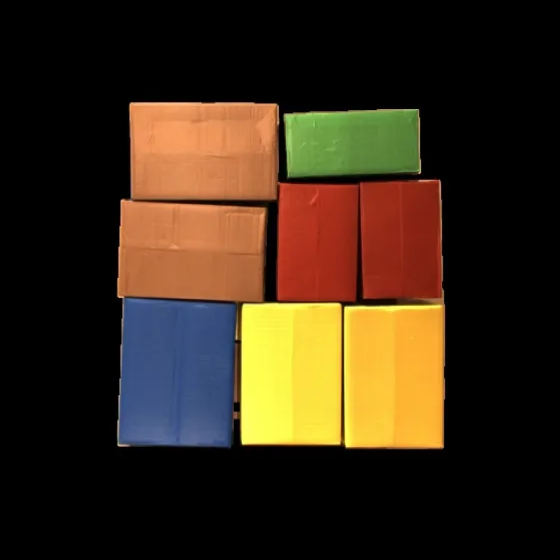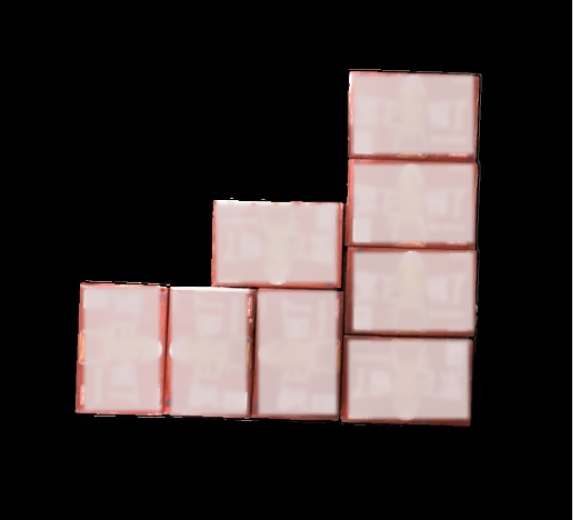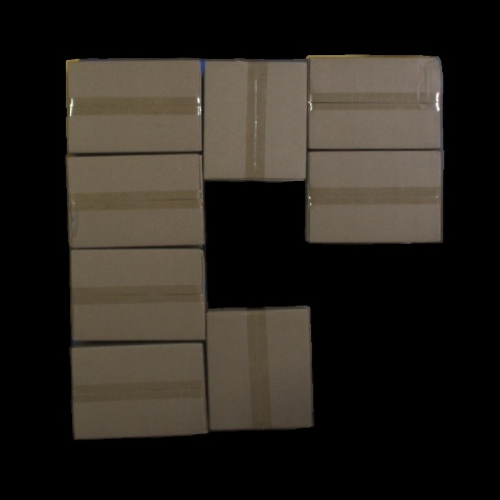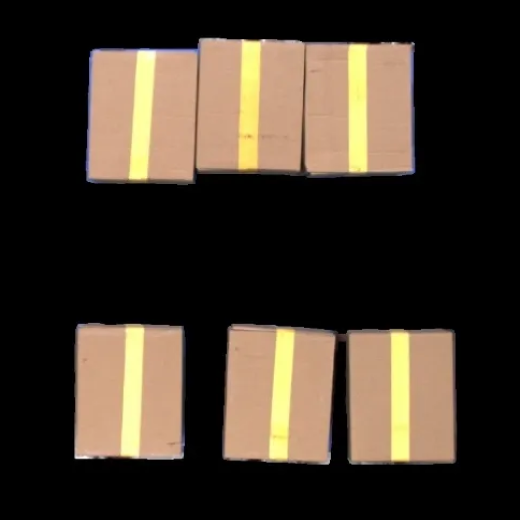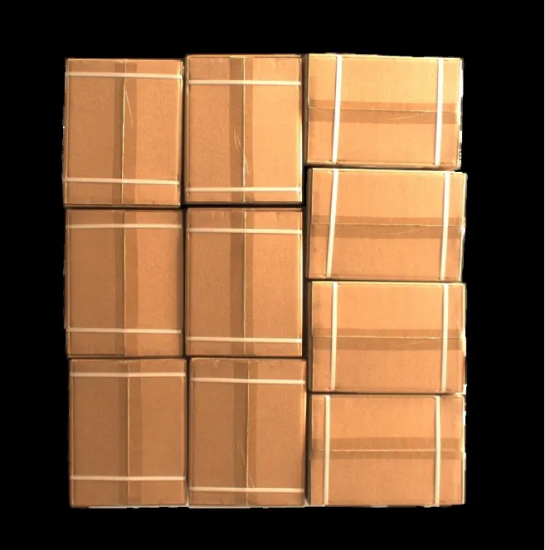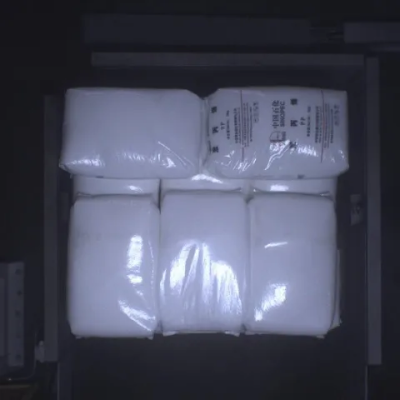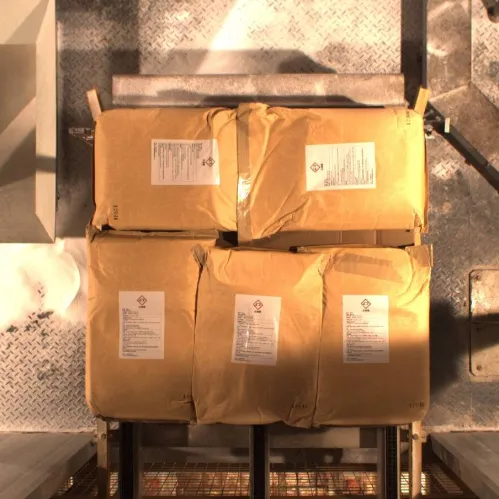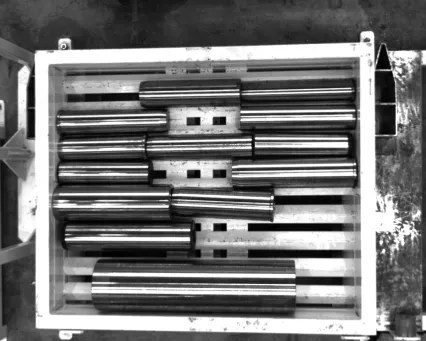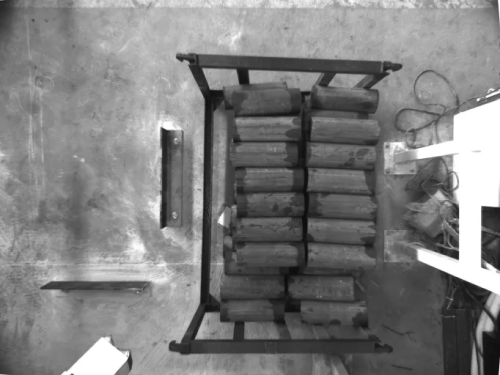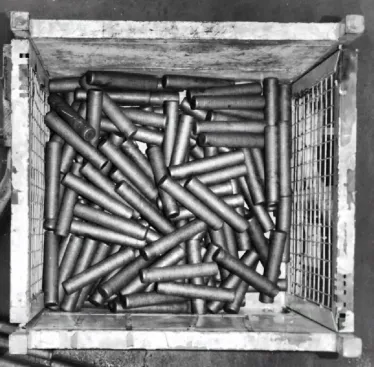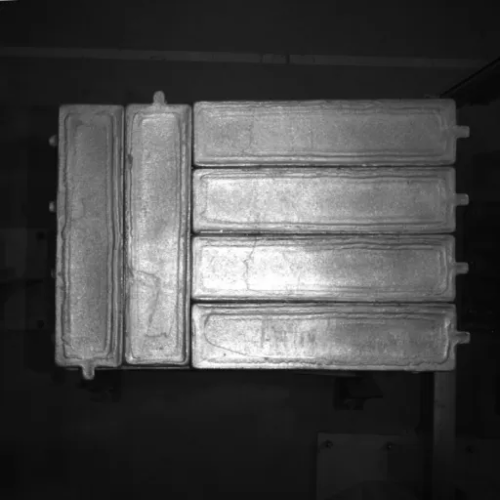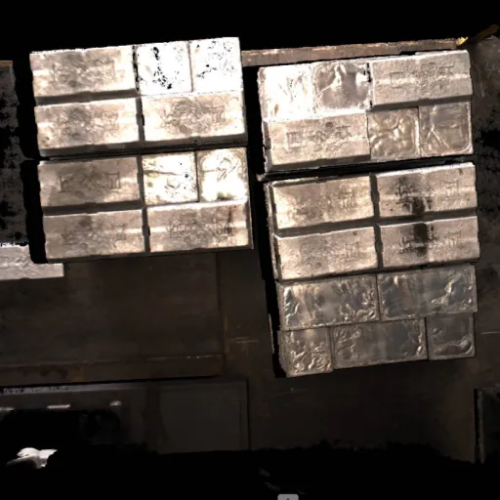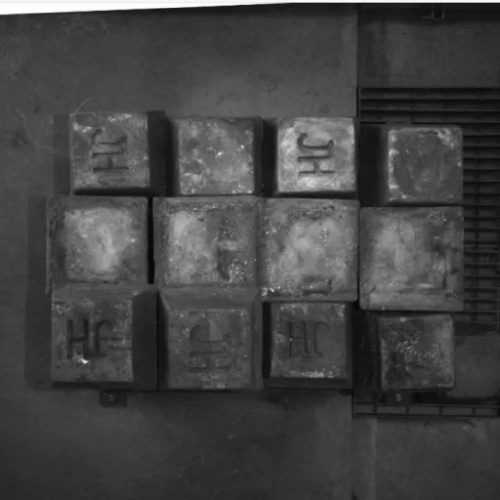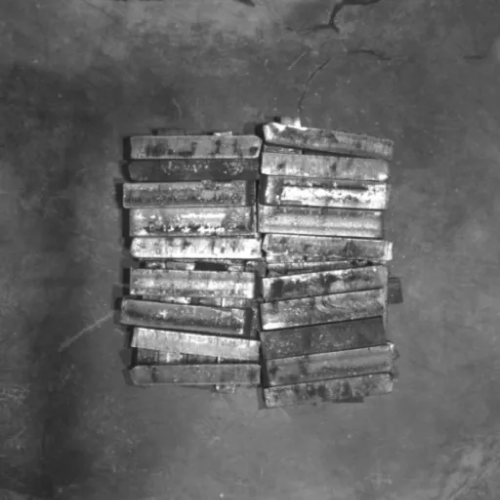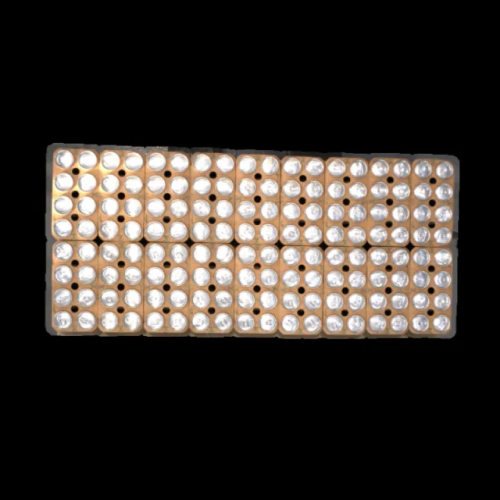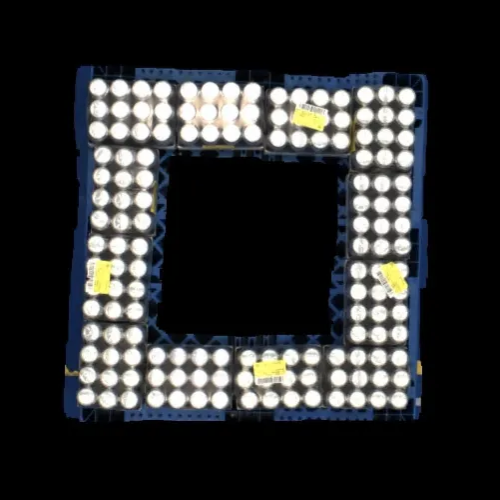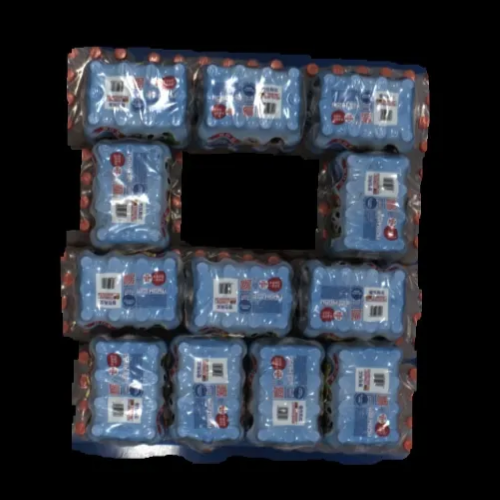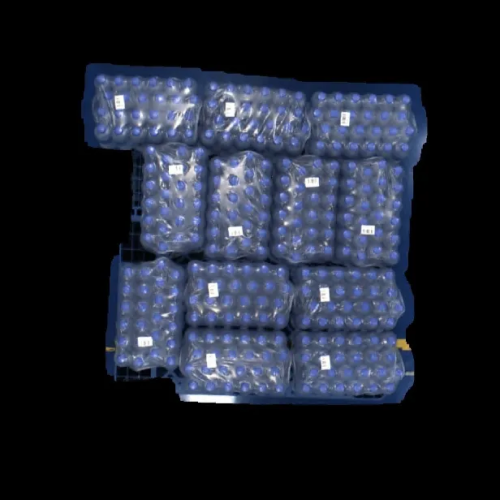General Models
General models are developed by Mech-Mind to palletize and de-palletize objects such as cartons and woven bags. You can deploy a general model in Mech-Vision or Mech-MSR to accurately segment objects without collecting data or training a model.
Go to the download center to download the general models (that is, the deep learning models in the download center). General models include model packages (.dlkpack) that are used for deployment and models (.dlkmp) that are used for fine-tuning.
Usage
General models can be selected based on the types of objects to be segmented.
| Deep Learning Model for Cartons | ||||
|---|---|---|---|---|
Plain carton |
Patterned carton |
Carton with transparent tapes |
Carton with opaque tapes |
Strapped carton |
|
|
|
|
|
| Deep Learning Model for Sacks | |
|---|---|
Full sack |
Partially filled sack with wrinkles |
|
|
| Deep Learning Model for Shafts | ||
|---|---|---|
Neatly arranged reflective shaft |
Neatly arranged matte shaft |
Randomly arranged shaft |
|
|
|
| Deep Learning Model for Metal Ingots | |||
|---|---|---|---|
|
|
|
|
| Deep Learning Model for Film-wrapped Packages | |||
|---|---|---|---|
|
|
|
|
Deploy the General Model Packages in Mech-Vision
You can use the Deep Learning Model Package Inference Step to import the general model packages and perform inference on images of cartons and sacks.
After the inference is completed, you can view the recognition results in Mech-Vision.
Deploy the General Model Packages in Mech-MSR
You can use the Deep Learning Model Package Inference Step to import the general model packages and perform inference on images of cartons and sacks.
After the inference is completed, you can view the recognition results in Mech-MSR.
Fine-tune the General Model in Mech-DLK
If the recognition results are not satisfactory, you can fine-tune the general model in Mech-DLK.
You can use the following method to fine-tune a model:
-
Acquire images that report poor recognition results.
-
Open Mech-DLK, create a new project, and add the Instance Segmentation module.
-
Enable the Developer Mode by clicking .
-
Add the acquired images into the training and validation sets.
-
Label the newly added images.
-
In the Training tab, select and then enable Finetune.
-
Select Deep learning model finetuning and click
 to select the model (.dlkmp).
to select the model (.dlkmp).The Deep learning model finetuning feature can be used to fine-tune the general model.
-
In the Training parameters tab, lower the Learning rate properly. The Epochs can be reduced to 50–80.
-
Complete model training and export the model.
After you fine-tune a model, you can export it as a model package (".dlkpack" file), then import it again into Mech-Vision for model package inference.
